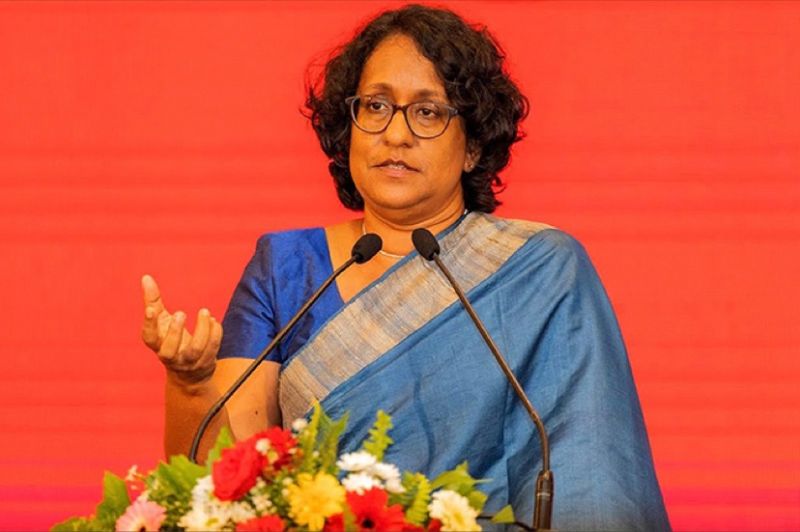COLOMBO: Sri Lankan President Anura Kumara Dissanayake has reappointed Harini Amarasuriya as Prime Minister, following the leftist coalition’s victory in the recent general election. The coalition, led by Dissanayake’s National People’s Power (NPP), secured 159 seats in the 225-member parliament, ensuring a strong mandate to pursue its policy agenda.
In addition to Amarasuriya’s reappointment, veteran legislator Vijitha Herath was also reappointed to head the Foreign Affairs Ministry. However, President Dissanayake chose not to name a new finance minister during the swearing-in ceremony, signaling his intention to retain the crucial finance portfolio himself, as he did after his presidential election win in September.
Dissanayake, a political outsider in Sri Lanka’s longstanding family-dominated political landscape, won the presidential election in September and initially appointed Amarasuriya as prime minister and Herath to oversee foreign affairs. Despite leading a coalition with just three seats in parliament, Dissanayake’s move to dissolve parliament and call for snap elections on Thursday helped secure the larger mandate needed for effective governance.
The re-election signals a continued push for policy consistency, with Dissanayake focusing on efforts to address poverty, reduce corruption, and rebuild the country’s economy following its devastating financial collapse. Sri Lanka’s 2022 economic crisis, sparked by a severe foreign currency shortage, led to a sovereign default and a 7.3% contraction in the economy that year, followed by a further 2.3% decline in 2023.
With a stronger political base, Dissanayake now has the legislative support to implement reforms, although questions remain about the direction of certain policies, particularly regarding the terms of the International Monetary Fund (IMF) bailout package that helped stabilize the economy. Analysts have raised concerns about potential shifts in the terms of the IMF rescue plan, which could create some uncertainty moving forward.










